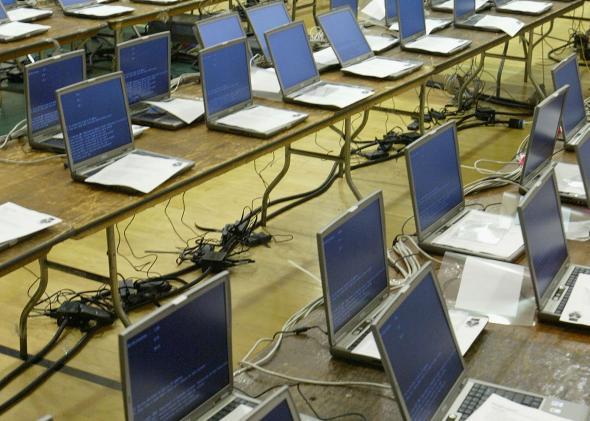Happy Beer Friday before Beer Long Weekend, guys! Still searching for day-after-Columbus-Day plans? May we suggest: crashing a Wikipedia editing party at Brown University?
Organized by Maia Weinstock, who works for an educational kids’ website called BrainPOP, Tuesday’s Ada Lovelace Edit-a-thon 2013 will be a marathon editing session during which volunteers/party animals will gather at Brown’s Pembroke Hall and tune up the Wikipedia entries for women in the STEM fields. Guests of honor include Anne Fausto-Sterling, a gender studies and biology professor, and Michael Umbricht of the Ladd Observatory. Partygoers, who can also rage remotely (and live tweet everything using the hashtag #AdaWikithon), will create, expand, and improve Wiki articles about scientifically savvy ladies like archaeologist Martha Rhoads and engineer Ingeborg Hochmair. The overall objective? Bringing women’s scientific achievements to the Web’s attention and involving more women in the Wikipedia editing process. Wild!
Here’s why you should skip your SoulCycle class and go to this party: As my colleague Torie Bosch wrote in 2012, Wikipedia is not exactly a paradise of gender equity. There are about 13 male editors for every female editor on the site—and those female editors make fewer changes, on average, than their male counterparts. Topic bias means that issues of concern to geek dudes (such as Linux distributions) are rated as important, while issues women might find compelling (the design of Kate Middleton’s wedding dress, say) are deemed trivial and flagged for deletion. Bosch reports that the last time Wikipedia gender gurus held an edit-a-thon—culling forgotten female scientists from Smithsonian records—the posts they added were quickly dismissed as too inconsequential for an encyclopedia that devotes pages and pages to obscure Marvel comics. (Luckily, the editors were able to make a case for the new articles, which exist to this day.)
“When you are a minority voice, you begin to doubt your own competencies,” Catherine Orenstein of the OpEd Project told the New York Times in 2011. That could be one reason that women editors are underrepresented on Wikipedia. Or maybe, like Bosch, they find the community “legalistic and uninviting”; women do tend to prefer social online pursuits to solitary ones. Which is why—astonishing capabilities of us ladies aside—it sounds pretty fun to grab a beer and go hang out with some university students and tech veterans who want to make the Internet a more balanced, knowledgeable place for everyone. CAWLEGE! EQUITY! SNACKS! BYOPC! (Bring your own power cords.)
